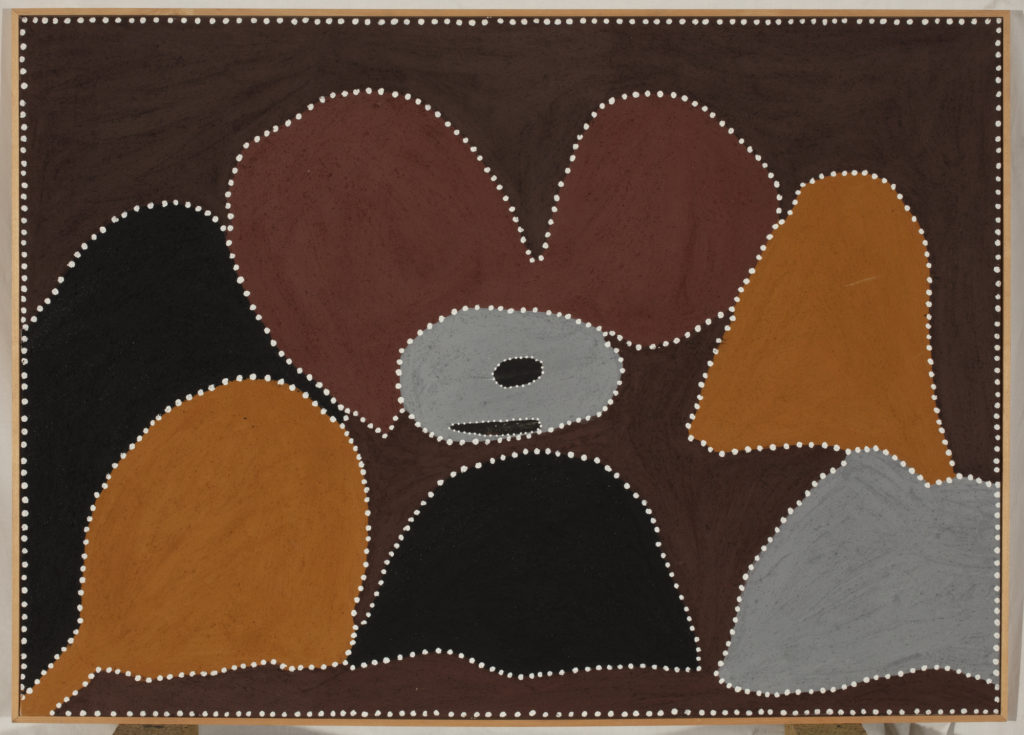Australian Art
Australian aboriginal art is the oldest continuous art tradition in the world, with rock art dating from 28,000 years ago.
In the Bristol collections we have examples of some of the types of Aboriginal art from the more recent past, from the 1900’s to the present, as well as work made by Australians of European descent.
Contemporary art in Australia today is created by artists from both traditions, using new techniques and materials, looking at their worlds with new perspectives and attitudes. Much of traditional Aboriginal art such as body art, ceremonial clothing or sand art was not created to last. Other more durable objects, such as shields or bark paintings were decorated with designs of great cultural, religious and spiritual significance. They often represented the mythical creation time (known as the Dreamtime) and the ancestral creatures who brought the natural and human world to life.

From the late 1700s Aboriginal communities were being brought forcefully into contact with European missionaries and other settlers on colonial reserves and mission stations. At one mission in the 1930’s this resulted in new art traditions emerging. The Hermannsburg School Aboriginal watercolour artists used European styles of painting to represent their spiritual connection with their land. From the 1970s Aboriginal ceramic artists also developed at the Hermannsburg mission.
Also in the 1970s, a school teacher at the Aboriginal settlement of Papunya encouraged the men of the community to transform their sacred ceremonial designs into paintings using European acrylic paints. Initially the paintings decorated a local school but eventually the artists created work on smaller boards and canvases for sale to galleries and collectors. They developed the ‘dot painting’ style which covered up some of the secret knowledge which was not suitable for the uninitiated to see. Today these ‘Western Desert art’ style paintings are now sold in global art markets and hang in international art museums.












![Imurra [possum] (ceramic)](https://ciim-public-media-s3.s3.eu-west-2.amazonaws.com/bristol3/large_A_AUST_225_1250x1250.jpg)
